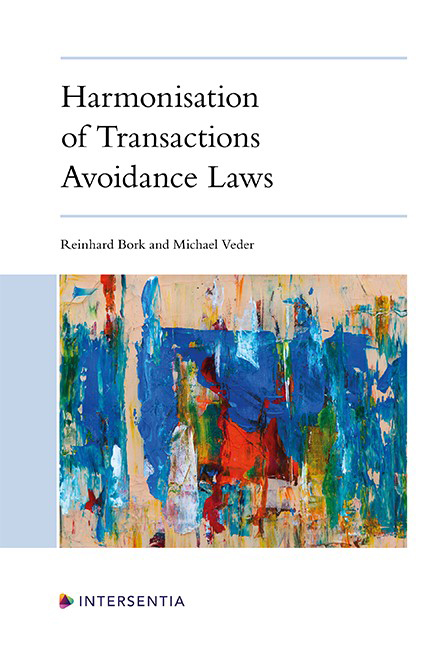United Kingdom
Published online by Cambridge University Press: 26 May 2022
Summary
PART 1. DETAILS OF YOUR NATIONAL TRANSACTIONS AVOIDANCE LAW
I. SYSTEM
Question 1. Is your transactions avoidance law (for terminology cf. Introduction at C.) part of insolvency law or is it in parts or as a whole incorporated in other fields of law (e.g. general civil law, commercial law, company law)?
The relevant provisions are part of insolvency law and are found in the UK Insolvency Act 1986 (as amended). The relevant provisions are sec. 238 (transactions at an undervalue), sec. 239 (preferential transactions), sec. 245 (invalidation of floating charges granted to secure past indebtedness) and sec. 423 (putting assets beyond the reach of creditors). These provision apply to corporates.
For individual debtors, Insolvency Act 1986 sec. 339 deals with transactions at an undervalue, sec. 340 with “preferences”, while sec. 423 on undervalue transactions that put assets beyond the reach of creditors, applies to individual debtors as it does to corporates.
Principally with a view to avoiding repetition, I will concentrate the analysis in this chapter on the provisions applying to corporates.
Question 2. Are the rules on transactions avoidance law in your jurisdiction the same for entrepreneurs/legal entities and consumers/natural persons? If not, please explain the differences and take it into account when completing this questionnaire.
The provisions are essentially the same with the exception of Insolvency Act 1986 sec. 245, which deals with the invalidation of floating charges which does not apply to individuals. The reason for this is that it is practically impossible for individuals to create floating charges, i.e. a security interest that extends to the whole or substantially the whole of an individual’s assets.
Question 3. Are the rules on transactions avoidance law in your jurisdiction the same for liquidation and restructuring proceedings (if any)? If not, please explain the differences and take it into account when completing this questionnaire.
Yes they are.
Question 4. Are the rules on transactions avoidance law in your jurisdiction the same for debtor-in-possession proceedings (if any)? If not, please explain the differences and take it into account when completing this questionnaire.
- Type
- Chapter
- Information
- Harmonisation of Transactions Avoidance Laws , pp. 1283 - 1314Publisher: IntersentiaPrint publication year: 2022



